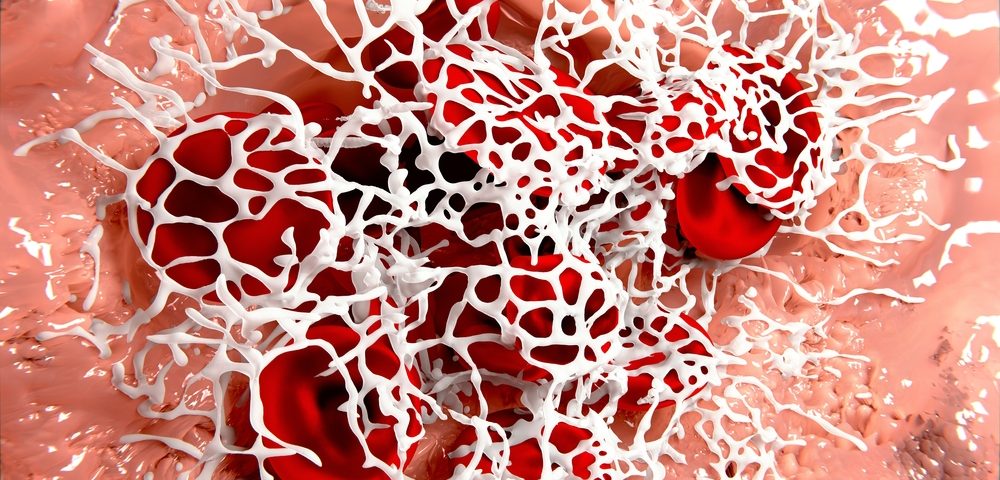Injecting fibrin glue into the prostate at the end of surgery for benign prostatic hyperplasia (BPH) reduces bleeding and has no impact on symptoms after the procedure, according to a study published in the journal Advanced Biomedical Research.
Excessive bleeding is one of the major complications of transurethral resection of the prostate (TURP). It leads to the need for blood transfusions during or after surgery, and it increases the need for further irrigation and removal of blood clots. It also increases the patient’s risk of heart attacks or cardiopulmonary events.
In the study, titled “The efficacy of fibrin glue injection in the prostatic fossa on decreasing postoperative bleeding following transurethral resection of prostate,” researchers at Isfahan University of Medical Sciences in Iran evaluated injecting fibrin glue into the prostate to stop or reduce bleeding linked to the surgery.
The research team recruited 60 men with BPH who were about to have a TURP procedure. The group was randomized to receive either the injection or no additional treatment. Patients with very large prostates were not included in the trial. The team measured hemoglobin levels and lower urinary tract symptoms (LUTS) before the procedure and at six, 24, and 48 hours after it. A final follow-up occurred five days after the surgery.
Because the recruits had been randomized, the team compared the participants’ ages, LUTS scores, and prostate sizes before the procedure to make sure the groups were comparable. They did not find any difference in the parameters.
Before the surgery and six hours afterward, the mean hemoglobin level was comparable between the 30 men who received fibrin glue and the controls. However, at all later time points, the control group had a larger decrease in blood hemoglobin than those who received the fibrin glue treatment.
No patients experienced TUR syndrome — a potentially life-threatening condition caused by the absorption of irrigation liquid during surgery. Furthermore, none of the participants experienced excessive bleeding, blood clot retention, or urinary tract infections during the study.
Researchers acknowledge that the study was small and more research is needed to confirm the effects of the treatment, including in patients with larger prostates, but they said the study suggests that the treatment is a valuable tool for reducing blood loss during TURP.

